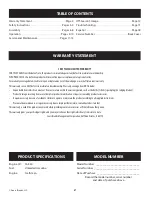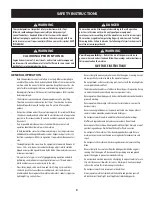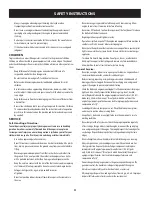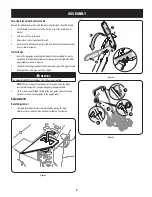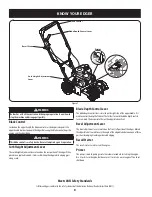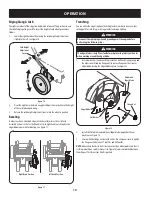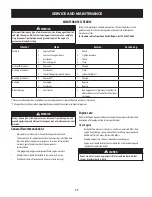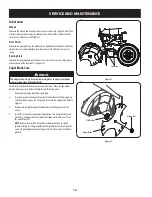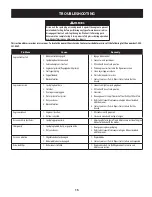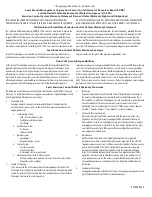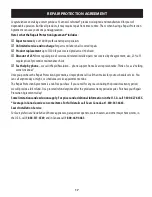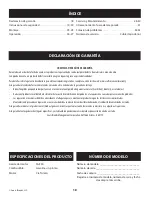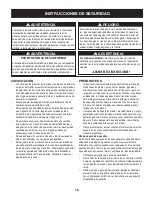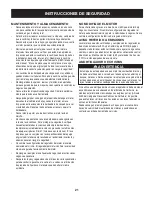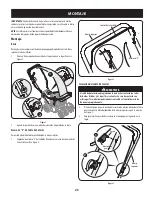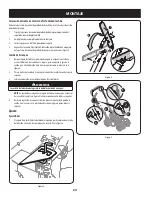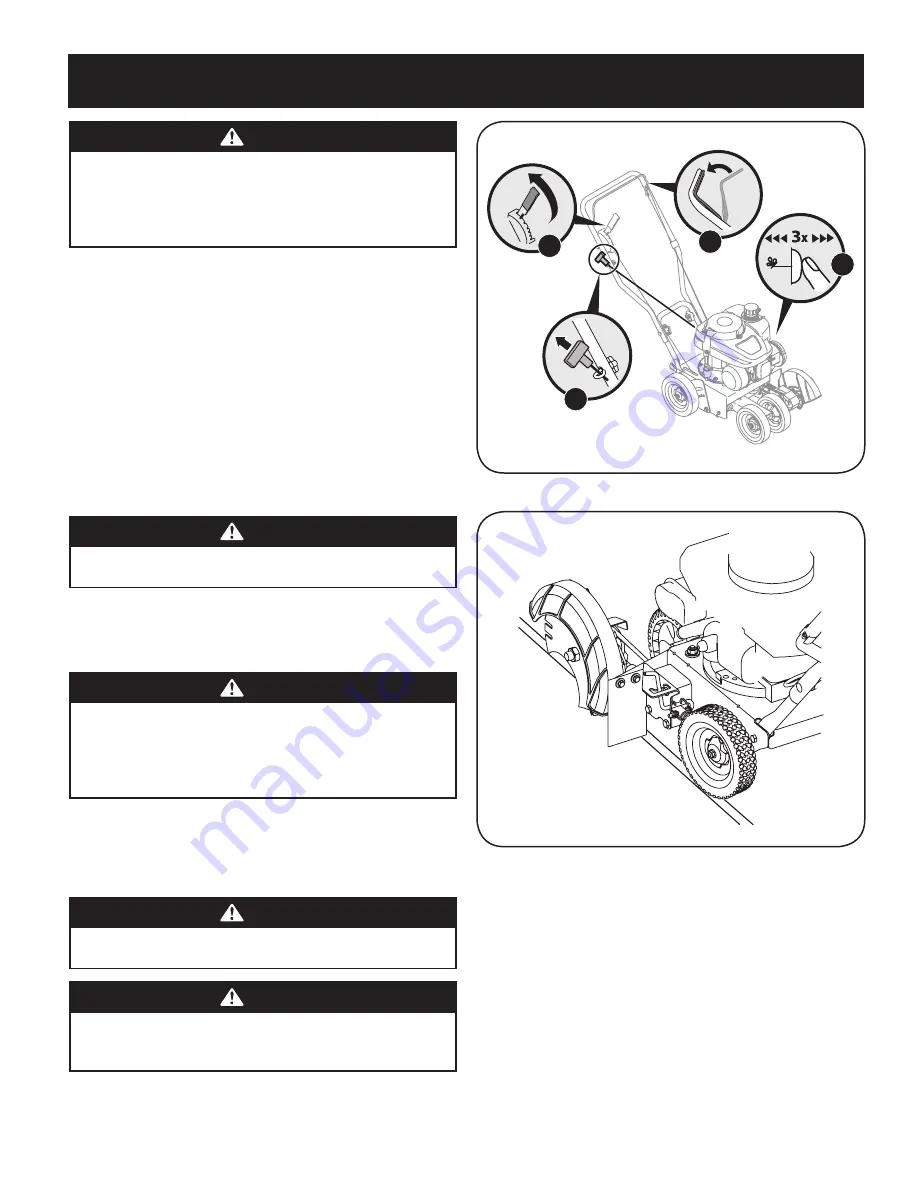
9
OPERATION
WARNING
Be sure no one other than the operator is standing near the lawn mower
while starting engine or operating mower. Never run engine indoors or
in enclosed, poorly ventilated areas. Engine exhaust contains carbon
monoxide, an odorless and deadly gas. Keep hands, feet, hair and loose
clothing away from any moving parts on engine and lawn mower.
To Start Engine
IMPORTANT:
This unit is shipped without gasoline or oil in the engine. Be certain to
service engine with gasoline and oil as instructed in the engine operator’s manual
before starting or running your machine.
1.
Move the blade depth control lever back to the START position in the
adjacent (top) notch.
2.
Push the primer three times. See Figure 8. Do not prime to restart a warm
engine.
NOTE:
If you push the primer too many times, excessive fuel will flood the
carburetor and the engine will be difficult to start.
3.
Standing behind the edger, depress the blade control and hold it against the
upper handle with your left hand.
WARNING
This blade control mechanism is a safety device. Never attempt to bypass
its operation.
4.
With your right hand, grasp recoil starter handle and pull rope slowly until
resistance is felt, then pull with a rapid, continuous, full arm stroke. See
Figure 8. Keeping a firm grip on the starter cord handle, let the rope rewind
slowly. Repeat until engine cranks. Let the rope rewind each time slowly.
WARNING
Keep a firm grip on the cord handle and maintain sufficient backward
tension on the cord at all times to prevent rapid starter cord retraction
(kickback). Rapid retraction can pull arm and hand toward the engine
faster than you can let go, and result in broken bones, fractures, bruises or
sprains.
To Stop Engine
1.
Release blade control to stop the engine and blade.
Edging
WARNING
Rotating cutting blade may throw objects causing personal injury. Keep
area clear of bystanders and do not operate without guards in place.
WARNING
Do not lower blade if blade is over concrete, asphalt, rocks or the like. Blade
can strike supporting surface, resulting in personal injury or property
damage.
To begin edging, proceed as follows:
1.
Move edger to an area to be edged, making sure that the left rear wheel is on
a hard surface and the blade is over the area to be cut. See Figure 9.
3
4
2
1
Figure 8
Figure 9
2.
With the blade control squeezed against the handle in the operating
position, make a pass along area to be edged before proceeding to the next
notch. The further forward that the blade depth control lever is moved, the
deeper or lower the blade will cut into the ground. Several passes may be
necessary to obtain the desired depth of cut. Do not lower blade more than
one depth notch at a time without making a pass.
3.
For best results, proceed slowly along the path being edged. Slowly move
edger back and forth through cutting area, again making sure to keep the
left rear wheel on the hard surface and the blade in the cutting path, close to
but not touching the edge of the hard surface.
4.
Once you have finished edging selected area, raise the blade depth control
lever back into the START position, move to the next area to be edged, and
proceed again from step 1.


